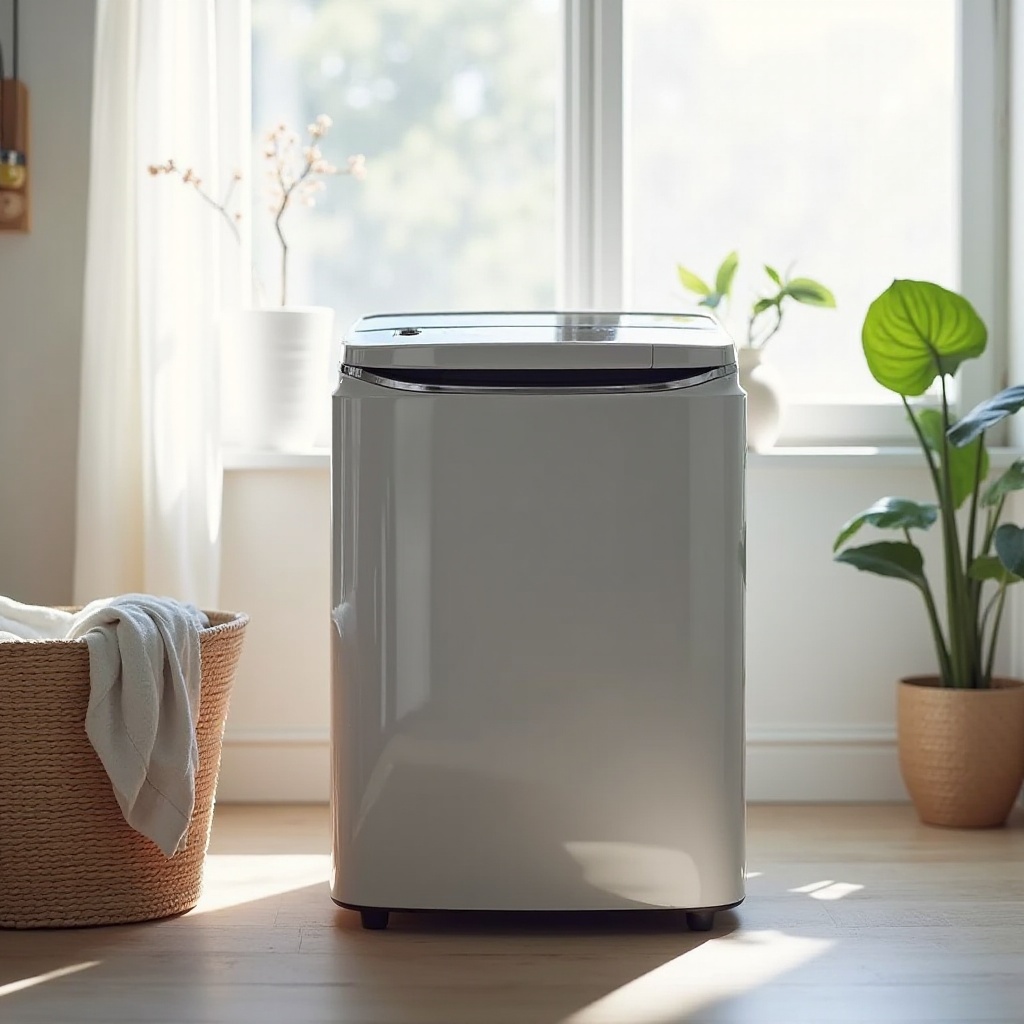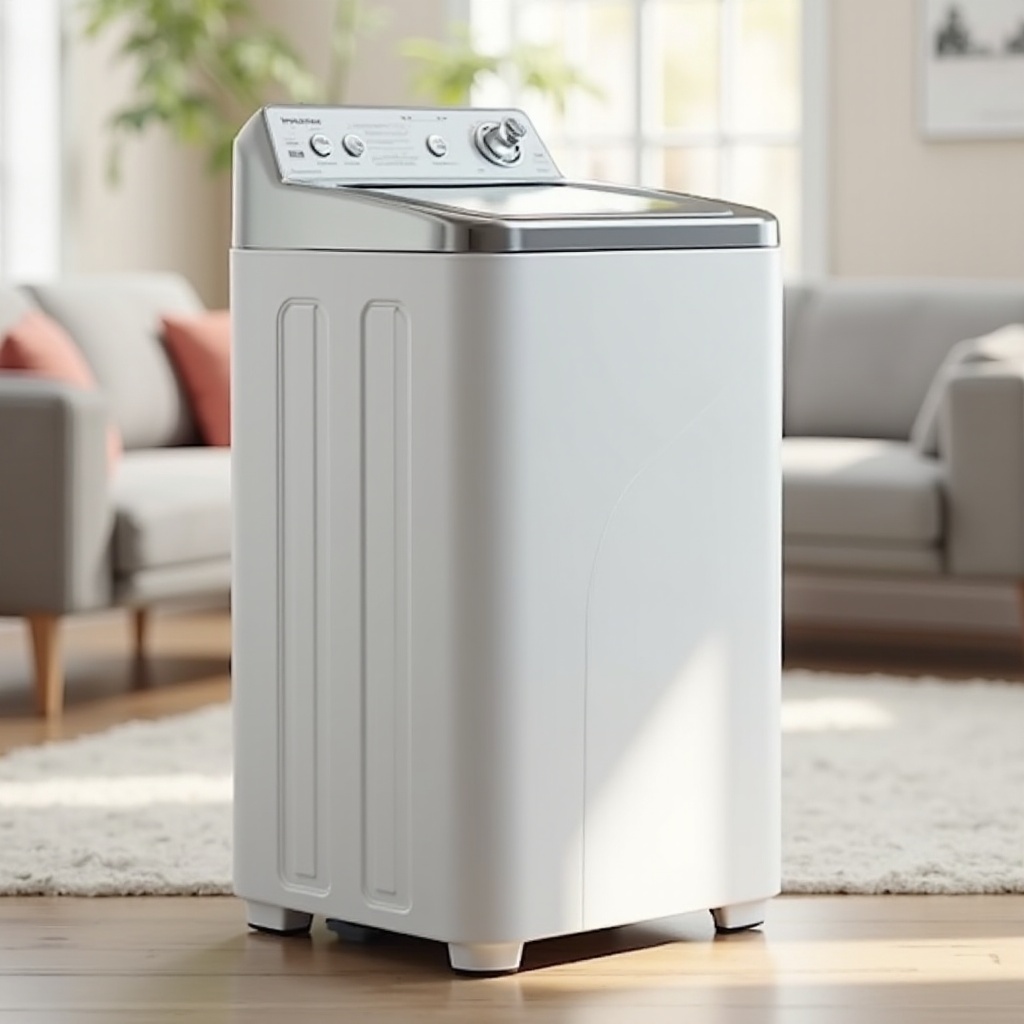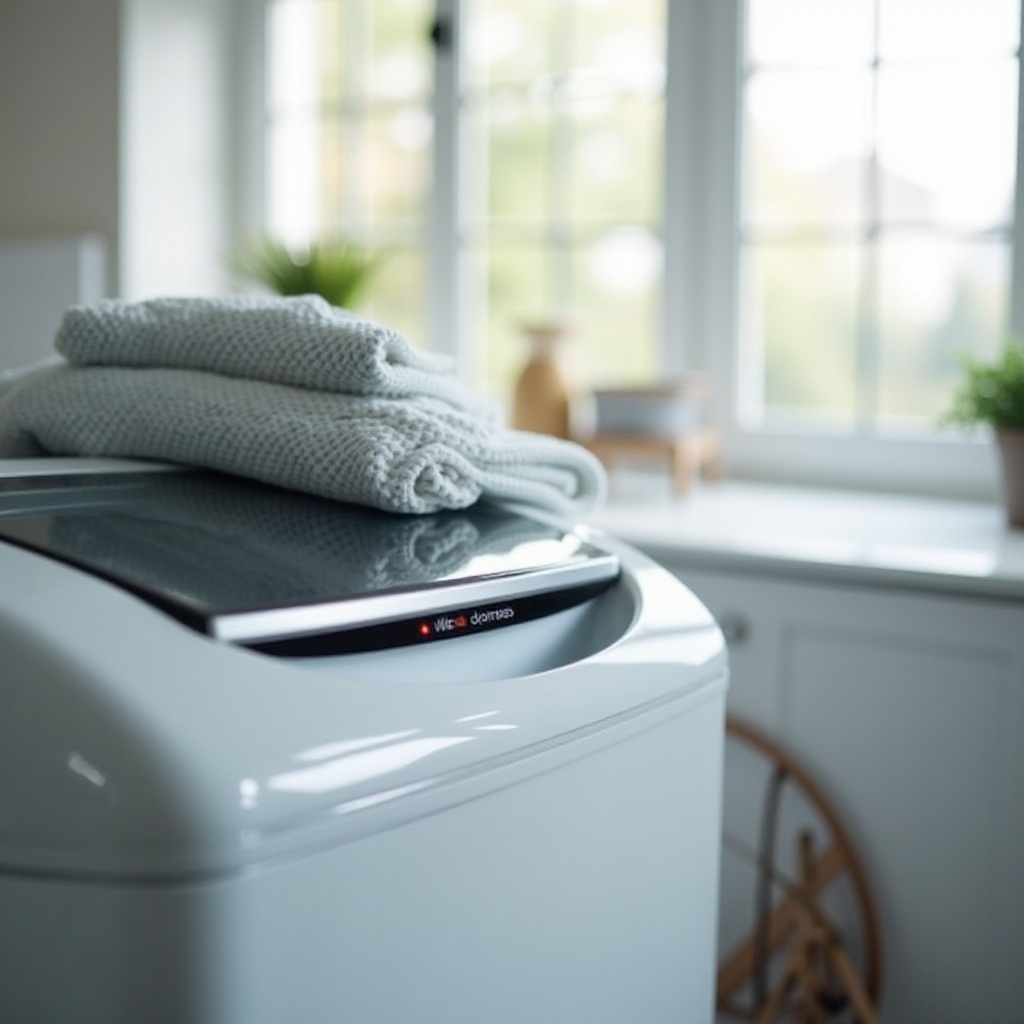Introduction
Portable washers have revolutionized the way we approach laundry, especially for those in small apartments, RVs, and other tight living spaces. They offer flexibility, cost savings, and efficiency without compromising on performance. But with so many options available, how do you choose the best one for your needs? This comprehensive guide will walk you through everything you need to know about the best portable washers in 2024.

What is a Portable Washer?
Portable washers are compact, lightweight washing machines designed for easy mobility and convenience. Unlike traditional washers, they don't require permanent installation. Simply connect them to a faucet when in use, and store them away when they're not needed. This makes them perfect for small living spaces and those who move frequently.
Types of Portable Washers
- Manual Portable Washers: Operated by hand, these are highly efficient and require no electricity. Ideal for off-the-grid living.
- Electric Portable Washers: Powered by electricity, these offer more features and convenience but need an electrical outlet.
- Compact Combo Units: These units combine washing and drying functions in one, saving even more space and time.
Understanding what a portable washer is sets the foundation for making an informed purchase. Next, we will delve into the key features that set the best portable washers apart.

Key Features to Look for in a Portable Washer
When selecting a portable washer, several crucial features can make or break your experience. Here are the key aspects to consider:
Size and Capacity
The size and capacity of the washer should fit your space and laundry needs. Smaller units are perfect for tight spaces but may require more frequent loads.
Efficiency (Energy and Water Usage)
Energy efficiency is vital for saving both money and the environment. Look for washers with Energy Star ratings and water-efficient cycles.
Noise Levels and Vibration Control
A noisy washer can be disruptive, especially in small living spaces. Models with advanced vibration control and noise reduction features are preferable.
Portability and Ease of Installation
The primary purpose of a portable washer is its mobility. Ensure the unit has wheels or handles for easy movement and simple connections for faucets.
By understanding these features, you can make a more informed decision about which model suits your needs. Let's now examine the top portable washers available this year.
Top Portable Washers of 2024: In-depth Reviews
We've analyzed numerous models to bring you the top portable washers of 2024. Our reviews consider performance, features, and user feedback.
High-End Models
- Model A: With advanced features and a sleek design, this model is perfect for those who require high performance and are willing to invest a bit more.
- Model B: Offers high capacity and multiple wash settings. Ideal for families.
Budget-Friendly Options
- Model C: Affordable and efficient, this washer is great for students or those on a tight budget.
- Model D: Compact and reliable, perfect for small apartments.
Best Overall Performance
- Model E: Balances cost, efficiency, and performance. A top choice for a wide range of users.
- Model F: Known for its durability and ease of use, making it a favorite among users.
With so many great options, finding the perfect portable washer becomes easier. Now, let's explore how to make the most of your new appliance.
How to Use Your Portable Washer Effectively
Maximizing the efficiency and lifespan of your portable washer involves proper setup and usage.
Setup and Installation Tips
- Connect to a Faucet: Ensure the water intake hose is securely attached to your faucet.
- Position Properly: Place the washer on a flat, stable surface to minimize vibration.
- Check Electrical Outlets: Ensure the power cord can easily reach an electrical outlet.
Best Practices During Operation
- Load Management: Don’t overload the washer. Follow the manufacturer’s recommendations for load size.
- Use Appropriate Detergent: Use detergent designed for high-efficiency washers.
- Regularly Clean the Lint Filter: Keeping the lint filter clean ensures optimal performance.
Troubleshooting Common Issues
- No Drainage: Check for clogs in the drain hose.
- Excessive Vibration: Ensure the washer is on a flat surface and not overloaded.
With these best practices, your portable washer will function efficiently and last longer. Regular maintenance also plays a critical role, which we'll discuss next.
Portable Washer Maintenance for Longevity
Proper maintenance can extend the life of your portable washer and ensure it performs efficiently.
Regular Cleaning Routines
- Clean the Drum: Run an empty cycle with hot water and white vinegar to clean the drum monthly.
- Wipe Exterior Surfaces: Use a damp cloth to clean the exterior of the washer.
Preventive Maintenance
- Inspect Hoses Regularly: Look for leaks or signs of wear and replace if necessary.
- Check Connections: Ensure all connections remain tight and secure.
Dealing with Wear and Tear
- Replace Parts as Needed: Follow the manufacturer’s guidelines for part replacement.
- Service Regularly: Consider professional servicing annually to keep the washer in top shape.
Regular maintenance not only keeps your washer in good condition but also enhances its performance. Let's compare portable washers with traditional washers to give you a clearer picture.

Portable Washer Vs. Traditional Washer: Pros and Cons
Choosing between a portable washer and a traditional washer depends on various factors. Here’s a quick comparison:
Pros of Portable Washers
- Space-Saving: Ideal for small living spaces.
- Easy Installation: No permanent installation required.
- Cost-Effective: Generally cheaper than traditional washers.
Cons of Portable Washers
- Limited Capacity: Smaller loads compared to traditional washers.
- Manual Effort: Requires manual setup and connection each time.
Pros of Traditional Washers
- Larger Capacity: Suitable for large families and heavy loads.
- More Features: Often comes with advanced washing settings and cycles.
Cons of Traditional Washers
- Permanent Installation Needed: Requires a dedicated space and plumbing.
- Higher Cost: Generally more expensive to purchase and maintain.
Understanding the pros and cons will help you make an informed decision. In conclusion, knowing what suits your lifestyle and space best will lead you to the right choice.
Conclusion
Portable washers are a versatile and efficient solution for small living spaces. By understanding key features and best practices for use and maintenance, you can enjoy the convenience and efficiency of a portable washer. With our in-depth reviews, you’re now equipped to make the best choice.
Frequently Asked Questions
How much water does a portable washer use?
Portable washers use significantly less water compared to traditional washers, typically ranging from 10 to 15 gallons per load.
Can a portable washer handle large loads?
Portable washers are designed for smaller loads, usually up to 10 pounds. They are ideal for regular laundry but may need more frequent loads for larger quantities.
Is a portable washer as effective as a full-sized model?
While portable washers offer comparable cleaning capabilities for smaller loads, they may lack some of the advanced features and capacity of full-sized models.
